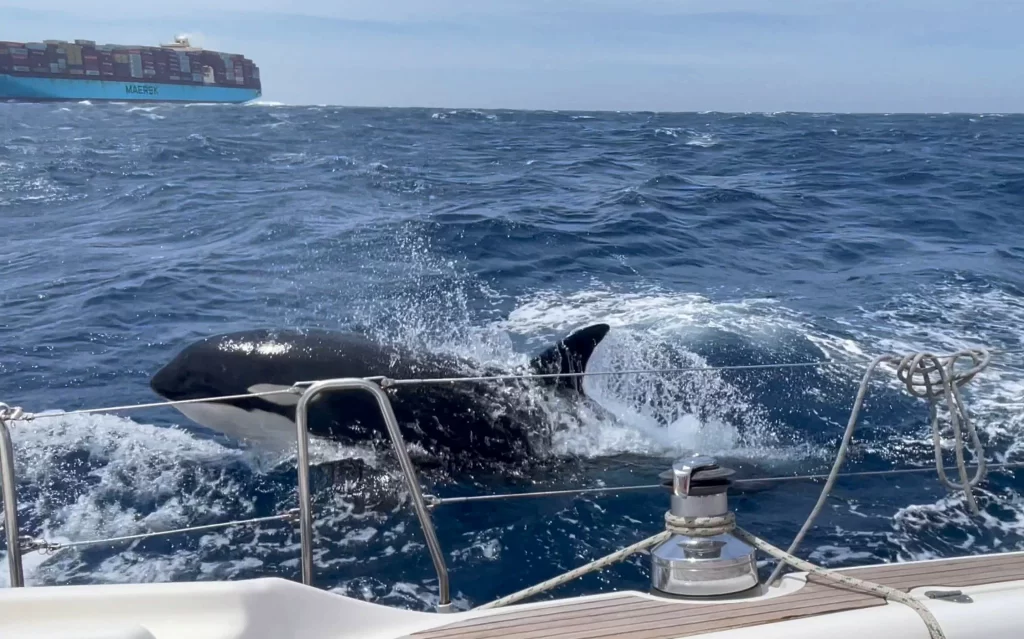Orcas, also known as killer whales, have been displaying peculiar behavior off the coast of Europe’s Iberian Peninsula, causing concern among scientists and boat operators. Recent reports indicate that a specific group of orcas residing in this region has been intentionally causing boats to sink, resulting in at least three incidents since May 2020. These occurrences involve the orcas biting, bending, and damaging boat rudders, leaving experts puzzled about the motives behind such actions.
Dr. Luke Rendell of the University of St Andrews, a marine animal behavior specialist, throws light on the scenario. According to him, the lack of evident evolutionary benefits, such as obtaining food or increasing survival rates, indicates that this behavior is not an adaptive feature. Instead, it parallels transient patterns observed in other cetaceans, such as dolphins transporting dead salmon or impersonating sea lions.
While discerning the exact reasons for this behavior proves challenging, Dr. Rendell proposes that curiosity and the exploration of novel food sources may play a role. It is plausible that individual orcas initially engaged in these actions, which were then transmitted through social learning within their group. Furthermore, traumatic experiences, like collisions with boat rudders, could trigger such behavior in certain individuals.
The fate of this particular grouping of orcas hangs in the balance, and it’s vital that we take their conservation status into consideration when managing this issue. Their attacks on vessels put people at risk, plus there’s a high chance of those same whales sustaining damage too. As a result, many are pushing for a resolution– including the potential massacre of these poor creatures. This poses an ethical quandary though: how do we maintain our liberties while preserving marine and human life?
Unraveling the precise motives behind these boat attacks remains elusive, and assertions regarding solidarity and self-defense among killer whales are speculative. While collective defense has been observed in other cetaceans, such as sperm whales rallying to protect one another against orcas, comprehending the internal mental states of orcas presents significant challenges. It is conceivable that these orcas perceive humans as a common threat, but it is equally plausible that they lack such a concept.
As society grapples with the implications of these incidents, it becomes crucial for relevant authorities to thoroughly consider long-term strategies for managing this subpopulation of orcas. This entails ensuring the safety of both humans and marine life, while cultivating a relationship of respect and sustainability with these awe-inspiring creatures.

